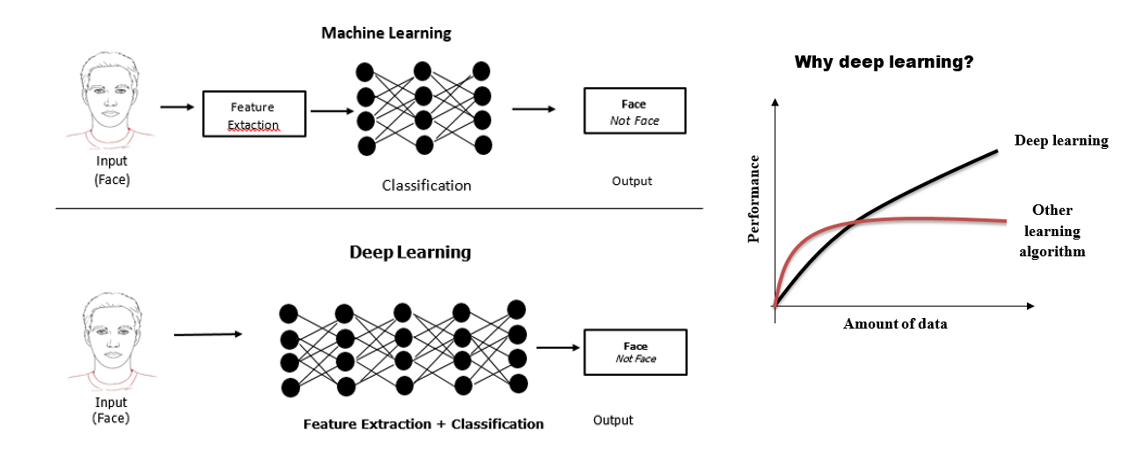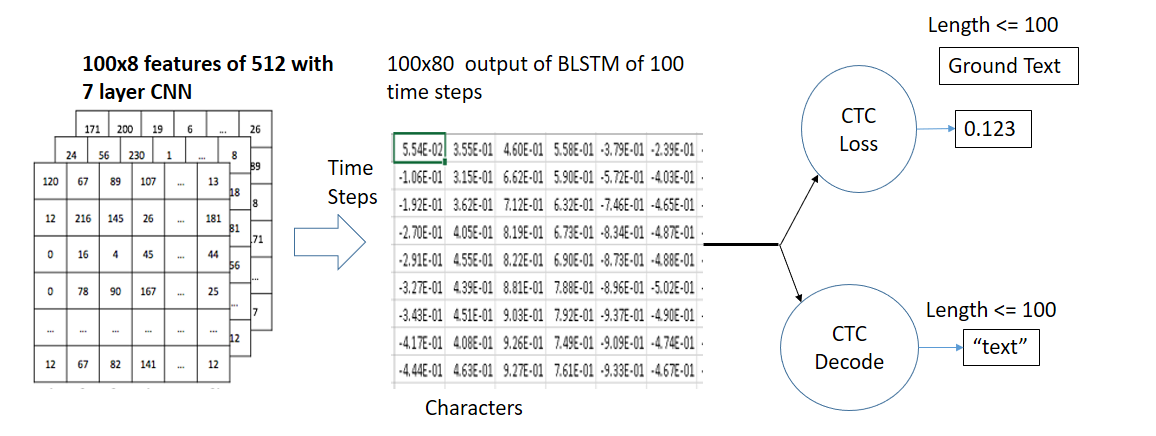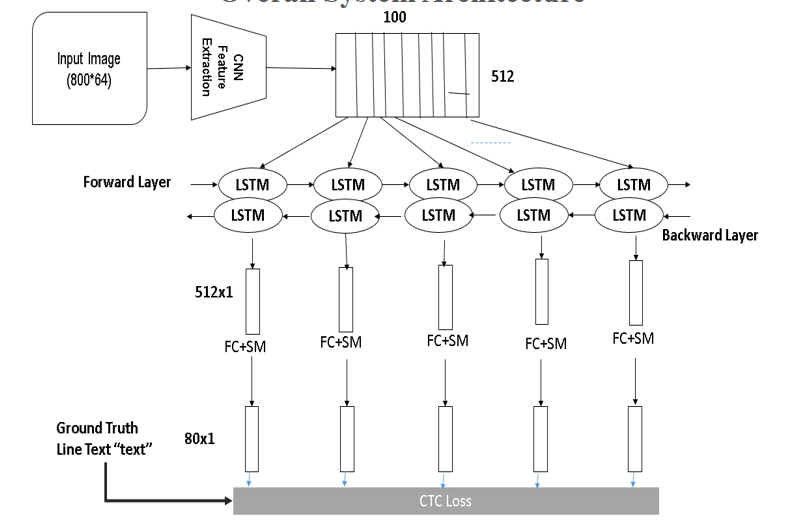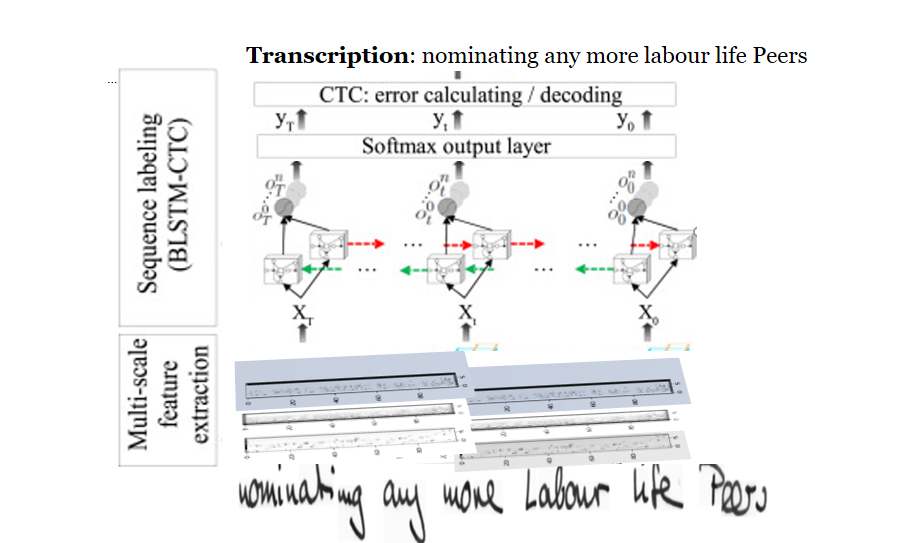Use Convolutional Recurrent Neural Network to recognize the Handwritten line text image without pre segmentation into words or characters. Use CTC loss Function to train. More read this Medium Post
Deep Learning self extracts features with a deep neural networks and classify itself. Compare to traditional Algorithms it performance increase with Amount of Data.
- First Use Convolutional Recurrent Neural Network to extract the important features from the handwritten line text Image.
- The output before CNN FC layer (512x1x100) is passed to the BLSTM which is for sequence dependency and time-sequence operations.
- Then CTC LOSS Alex Graves is used to train the RNN which eliminate the Alignment problem in Handwritten, since handwritten have different alignment of every writers. We just gave the what is written in the image (Ground Truth Text) and BLSTM output, then it calculates loss simply as
-log("gtText"); aim to minimize negative maximum likelihood path. - Finally CTC finds out the possible paths from the given labels. Loss is given by for (X,Y) pair is:

- Finally CTC Decode is used to decode the output during Prediction.
- Project consists of Three steps:
- Tensorflow 1.8.0 ; You can upgrade to Tensorflow v2 with this link
- Flask
- Numpy
- OpenCv 3
- Spell Checker
autocorrect>=0.3.0pip install autocorrect
- IAM dataset download from here
- Only needed the lines images and lines.txt (ASCII).
- Place the downloaded files inside data directory
The Trained model is available and download from this link. The trained model available have CER=8.32% and trained on IAM dataset with some additional created dataset. The final model have 3.42% CER which is not available publicly.
To Train the model from scratch
$ python main.py --train
To validate the model
$ python main.py --validateTo Prediction
$ python main.pyRun in Web with Flask
$ python upload.py
Validation character error rate of saved model: 8.654728%
Python: 3.6.4
Tensorflow: 1.8.0
Init with stored values from ../model/snapshot-24
Without Correction clothed leaf by leaf with the dioappoistmest
With Correction clothed leaf by leaf with the dioappoistmestPrediction output on IAM Test Data

Prediction output on Self Test Data

See the project Devnagari Handwritten Word Recognition with Deep Learning for more insights.
- Using MDLSTM to recognize whole paragraph at once Scan, Attend and Read: End-to-End Handwritten Paragraph Recognition with MDLSTM Attention
- Line segementation can be added for full paragraph text recognition. For line segmentation you can use A* path planning algorithm or CNN model to seperate paragraph into lines.
- Better Image preprocessing such as: reduce backgoround noise to handle real time image more accurately.
- Better Decoding approach to improve accuracy. Some of the CTC Decoder found here
If you use any part of this project in your work, please cite:
@techreport{Handwritten-Line-text-recognition-using-deep-learning-2019,
title={Handwritten Line Text Recognition},
author={Gautam Sushant},
institution={Tribhuvan University},
year={2019}
}Feel Free to improve this project with pull Request.
This is a work from my last semester project in computer engineering at Tribhuvan University. In July of 2019,









